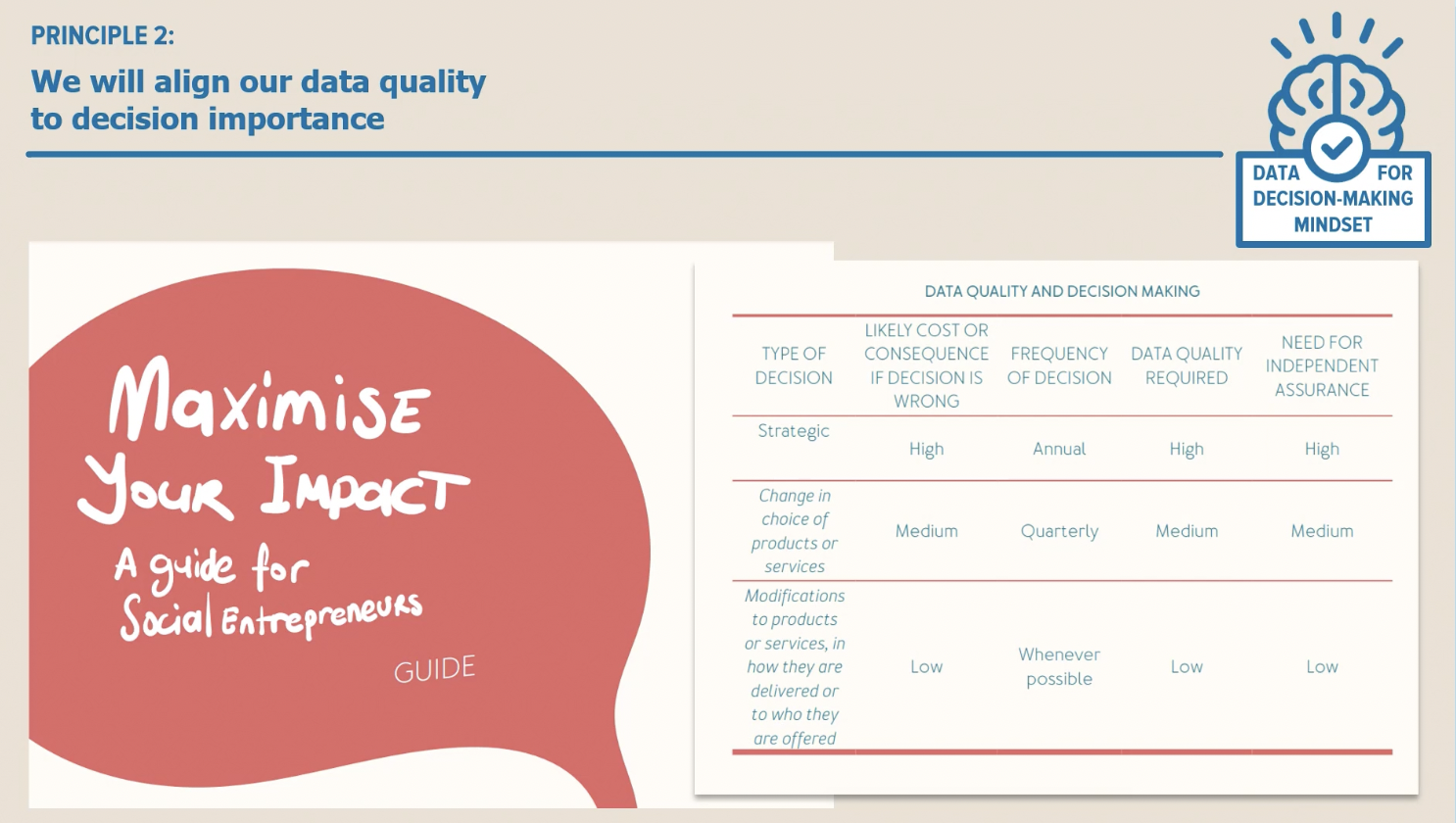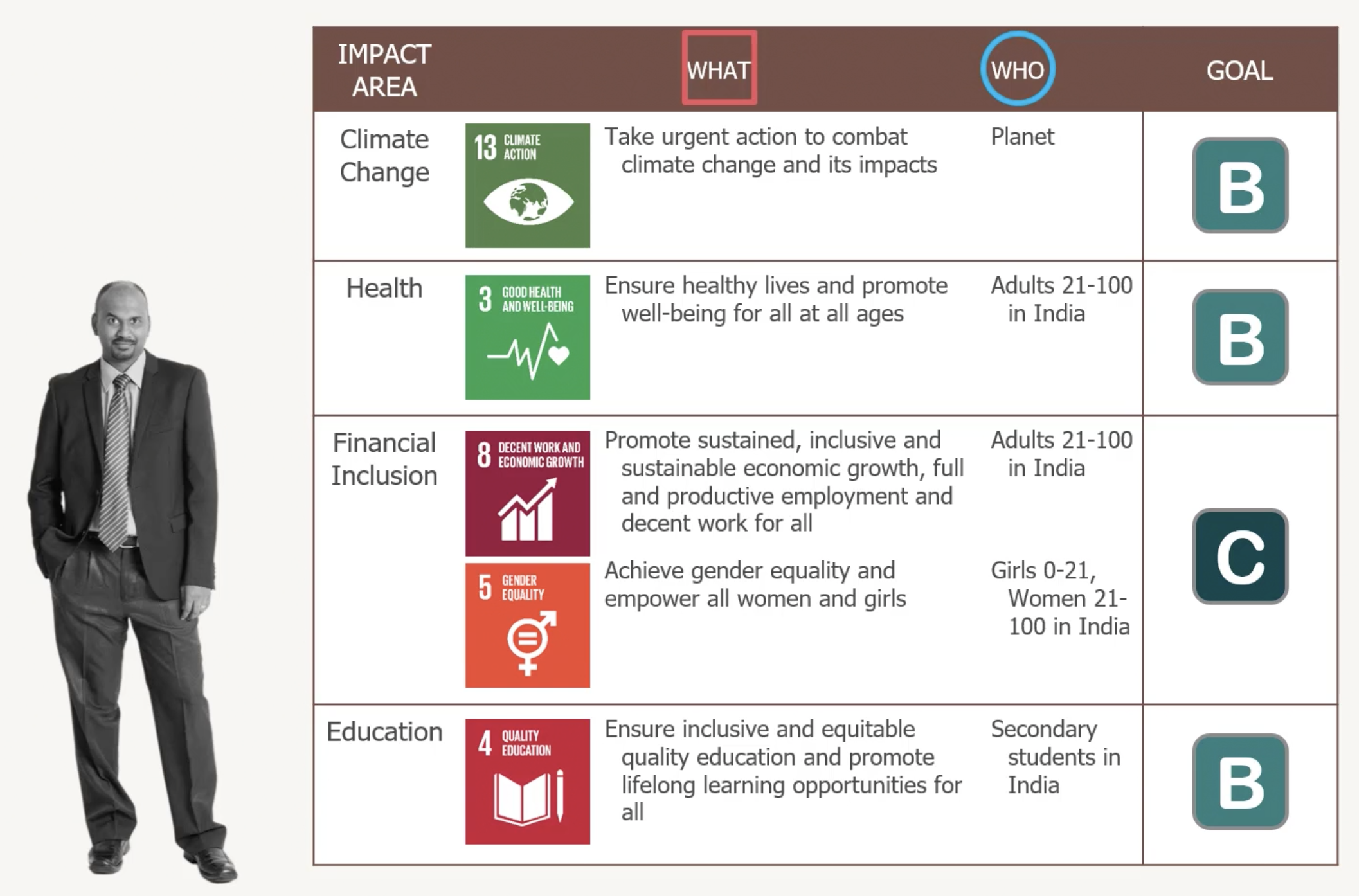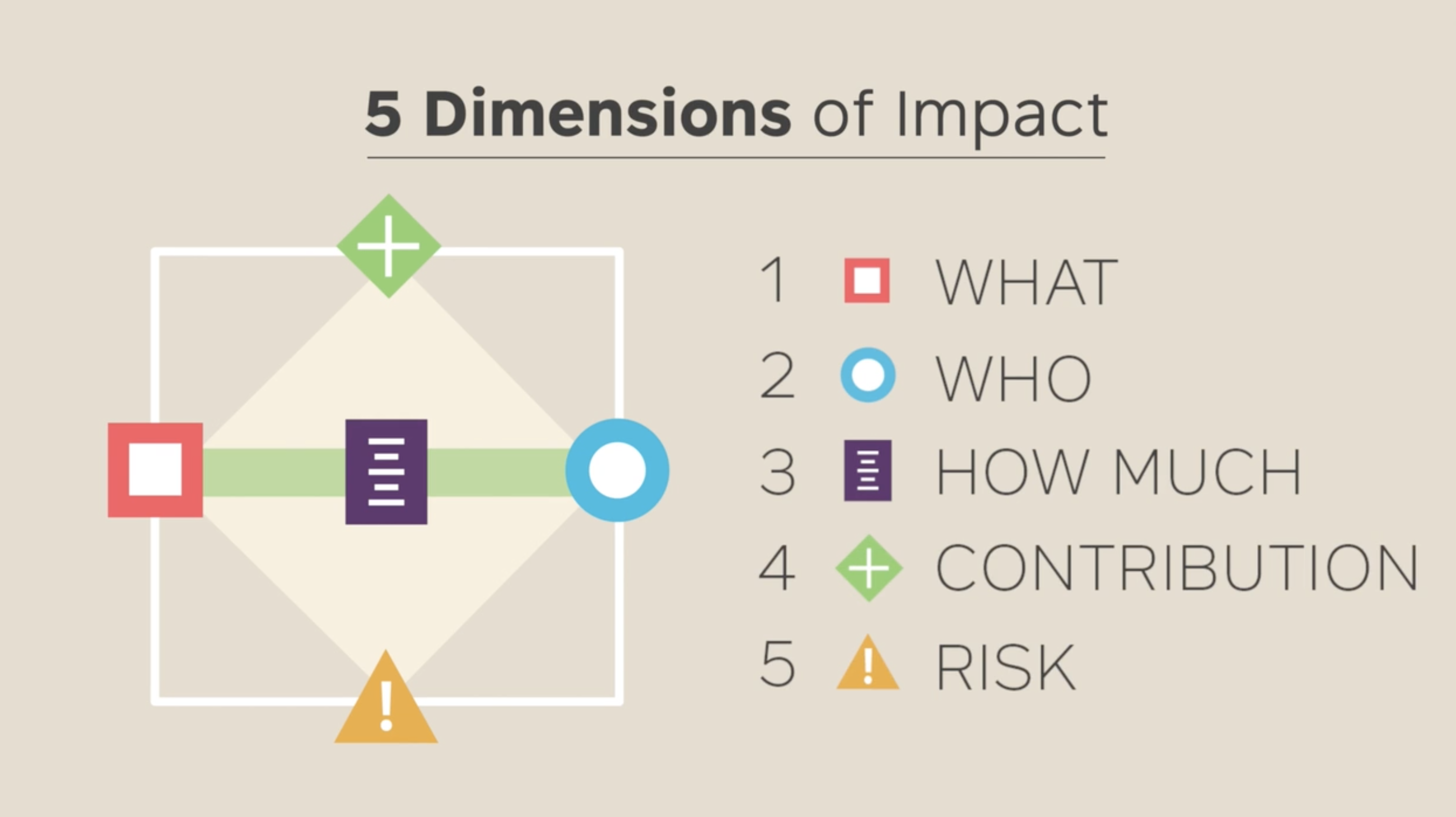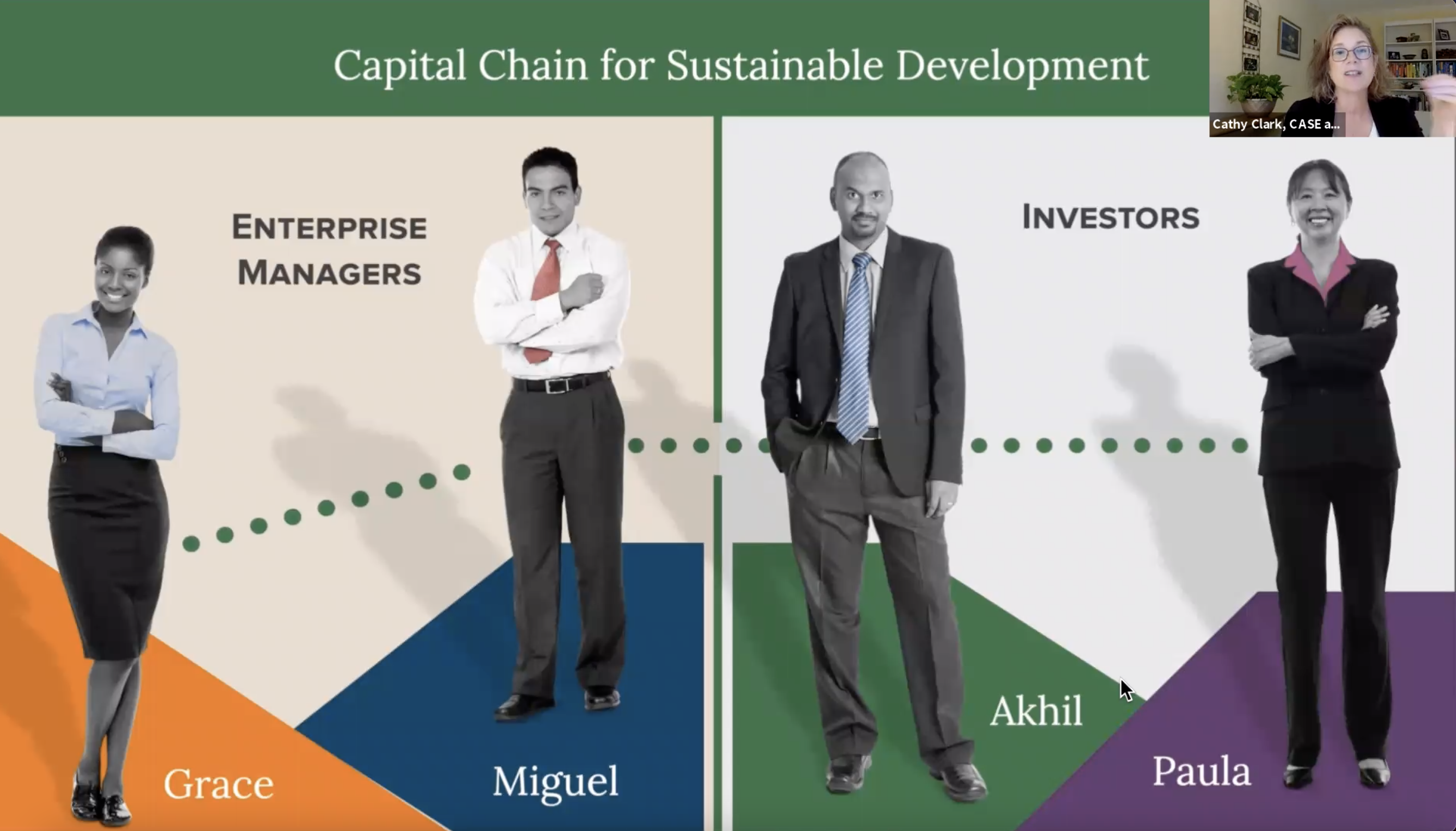ImpactAlpha, Feb. 7 – Impact first, last – and in between.
Private fund investments tend to attract the most attention – including in ImpactAlpha – when a deal is first closed, and again when an exit is achieved and returns are realized. But it is in the five to seven years between those events (in a typical 10-year fund) that dedicated asset managers can create the most value for companies and for their own investors.
A growing cohort of fund managers are creating such value by pulling one or more levers that can help increase the positive social and environmental impact of their portfolio companies.
The holding period is “where impact value is truly being created,” says Tideline’s Ben Thornley, an author of “New Frontiers in Value Creation.” The 84-page report was produced in partnership with Impact Capital Managers, an association of more than 115 fund managers with combined assets of over $100 billion that has staked out the proposition that outsized impact can drive outsized financial returns, or “impact alpha” (see, “Ranks of ‘impact alpha’ fund managers expand, along with client demand and the talent pipeline”).
“Where managers really work their magic is when they own the thing, when they can influence the thing,” says Thornley. “That’s where impact DNA and the sources of impact value creation – expertise, data, commitment, intentionality – really comes to the fore.”
Tideline and Impact Capital Managers will present the report and explore the levers for effective and financially-material impact value creation with managers from Citi, EQT Group, HCAP Partners, Nuveen and W.K. Kellogg Foundation in a webinar this Thursday, Feb. 8 (RSVP).
Growth and transformation
The report details more than a dozen case studies of investors that have helped their portfolio companies scale their impact using one or more levers of influence, including market positioning, product development and access to capital.
Other impact levers include encouraging workforce initiatives to enhance employee productivity and commitment and “impact risk management” to avoid or mitigate possible unintended consequences. Some managers help build or expand the addressable markets for impactful products and services.
Stockholm-based private markets investor EQT Group, for example, helped a global pest-control business transform its business around sustainable approaches and techniques, potentially changing an entire industry.
The firm’s impact fund, EQT Future, invests in proven, revenue-generating companies “where we see an opportunity to transform or pivot the business to particular solutions that will have meaningful positive impact,” says EQT’s Anna Brundtland. EQT Future has a longer holding period – seven or eight years – than the typical buyout fund, she says, because transforming and scaling companies can take longer.
Via its flagship fund, EQT had invested in the global pest-control company Anticimex (“cimex” means pest) more than a decade ago. The firm helped the company develop a digital early detection system, called SMART, that helps prevent pest outbreaks, minimizing the use of harmful pesticides. It also developed non-toxic, more sustainable pest control approaches.
In Nov. 2021, EQT Future acquired Anticimex with an eye towards remaking the company around the nascent SMART business. EQT helped the pest company expand its sustainability team, including adding a chief biology officer, and aligning financial incentives and bonuses with growth of the SMART pest solution.
Today, the green product line is growing five times faster than the rest of the pest business, and is approaching 20% of Anticimex’ rodent control sales. More than 460,000 SMART devices are installed worldwide. EQT is helping expand the product to cover more types of pests, and expand into new regions.
Anticimex’s success is spurring its competitors to adopt similar approaches in what EQT impact director Katherine Kitson calls the “market demonstration effect.”
Its pivot is helping “prove to the broader market that there is an efficacy of these nature-based solutions, that there is really a way to make this essential service, pest control, much more nature-positive than the conventional methods,” she says.
Financial materiality
Those kinds of “transformation” strategies can be complemented by hands-on help in improving operational systems. Nuveen Investment Management, the asset management arm of TIAA, is focused on an inclusive transition to a low carbon economy through its Global Impact Fund. In 2021, Global Impact invested in Annapurna Finance, a large microfinance provider in India serving some 2.5 million mostly rural and female entrepreneurs.
Nuveen saw an opportunity to boost the climate resilience of Annapurna’s customers by helping it introduce new loan products for rooftop solar, EV financing, energy storage and other green solutions, and develop a dedicated green financing unit.
At the same time, Nuveen’s impact team tapped into physical climate risk data to enable Annapurna to assess the evolving climate vulnerability of its clients. The microfinance firm built an early warning system for extreme weather to alert clients to coming storms. The operational improvements have helped lower risk and act as a stabilizing factor on debt payments.
The foundation of impact value creation is what Tideline calls the “financial materiality of impact,” that is, the extent to which improved social or environmental outcomes affect financial performance. Impact-led value creation can affect all drivers of financial value, the report says, including revenue growth, margin enhancement, long-term productivity and valuation multiples.
“A lot of what this report is helping to support is the evidence base that impact on financial performance can run collinear,” said Diane Kulju, who heads Impact Capital Managers’ research and impact measurement and management practice. “Whether it be through growth, where the impact is baked into the product or service, or through strong workforce management, where you’re bringing employees who are engaged and have high retention, that really add to a better bottom line.”
Aligned capital
The lack of liquidity in private capital markets conversely gives impact managers time to work their “magic.”
“Specifically in impact investing, our goal is to be long term partners,” Humaira Faiz, mission investment manager at the W.K. Kellogg Foundation, told ImpactAlpha. “We tell all of our new investments, for us, this is not a transaction. This is the beginning of a long term relationship.”
Kellogg has been a long-term investor in Acelero Learning, an early childhood education company looking to bring a high quality curriculum to low-income communities. In one of the foundation’s first mission-related investments, Kellogg provided early stage capital. Kellogg also provided Acelero a grant for research and to document its impact.
As Acelero’s Head Start centers and programs began to gain traction, the foundation realized, “Who was going to continue to support them in their growth stage?” recalls Faiz. “That felt like a capital gap.”
Kellogg had invested in BlackRock’s Impact Opportunities fund, or BIO, as part of an expansion into growth and buyout funds with a racial equity lens. When Acelero needed growth capital shortly after Kellogg became an LP in BIO, Faiz made the introduction.
“A really core component of our playbook is bringing in aligned capital, especially where we see the most need,” she says.
BlackRock led a syndicate, including The Builders Fund, that invested in Acelero in November 2022. The new investors identified Acelero’s “Shine” business, which supports other Head Start providers, as having the greatest potential to scale impact. They helped the company to codify its intellectual property, enhance its hiring and retention, and streamline operations.
“It was amazing to see, just a few months later, that thesis prove out,” says Faiz. “Acelero needed the growth capital and BIO, a multi-strategy, multi-sector fund with a lot of flexibility and big ticket size, was able to really fill that capital need with impact-aligned investors.”
“The thesis played out in front of us perfectly.”








